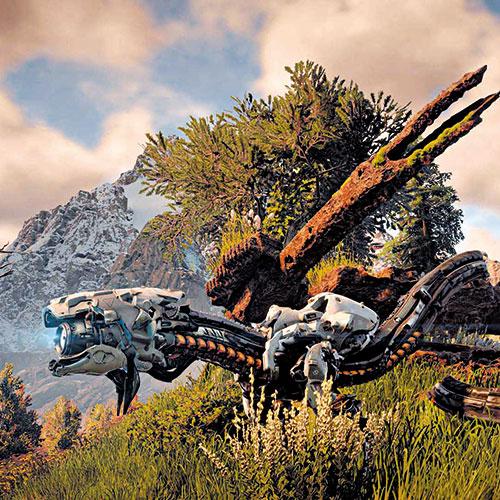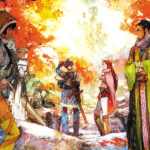Paige FTW: The Hubris Of Man

Here’s a theme dominating our pop culture landscape at the moment — the idea that man has overreached, destroyed the balance of his earthly surroundings and paid a terrible price for it.
The most recent example, of course, is Thanos in Avengers: Infinity War, who feels that life in the universe is actually killing it — and thus seeks to wipe out 50 percent of everyone to give the environment a chance to recover. Thanos isn’t wrong on a fundamental level, but his methods leave something to be desired.
It came up again (for me) in Horizon: Zero Dawn’s premise is that our overreach in technology backfired spectacularly, wiping out mankind and forcing a beleaguered computer program to try to make things right without us. Aloy can pick up fragments of the world that once existed — bits of text and sound that show a world carried away by avarice in the name of progress.
It is an old story, told anew. Final Fantasy VII famously saw ShinRa Electric Power Co. sucking the life out of the planet — which the zealous Sephiroth responds to by summoning Meteor to destroy it all. The world of WALL-E is a desolate trash heap, sucked of any value by humans (who have since fled into space).
The mantra, which has been repeated and repeated with increasing urgency as the years go by, is simple: We are running out of time. We are on the path of no return. The hubris of man will be his downfall. It’s not hard to look at our current political landscape and get the feeling that we’re at least in the first chapter (maybe second) of this story.
The worrisome thing, for me at least, is that these stories are never redemptive. We can only recover from the disaster, pick up the pieces and start anew. Cloud did not prevent Meteor from hitting Midgar. Aloy is a child of the apocalypse.
Mankind is never able to stop the fall.











